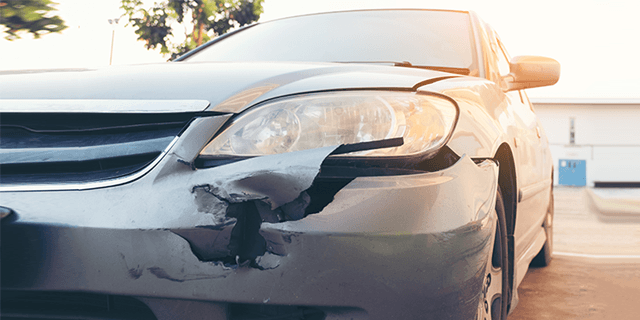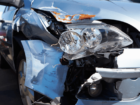Finding out your car is a write-off after an accident can be a shock. It can also be baffling if you don’t exactly know what it means, especially as there are different categories of write-off that have been updated in the last few years. To help make things clearer – here’s what you need to know.
What does write-off mean?
‘Write-off’ is an insurance term that’s used to describe a car that’s too expensive to repair – either because it’s too badly damaged, or because repairs would cost more than the car’s value.
There are four categories of write-off (A, B, S, N) but groups S and N used to be known as C and D. The groups were changed in October 2017 to take into account the specific type of damage caused and not just the cost of repairs.
Even though the official names have been changed, you can still find second hand cars on sale listed as ‘cat C or cat D write-off’ so it’s handy to know what these mean.
Related: Car insurance write-offs and what to do after an accident

What is a cat A write-off?
Category A cars are severely damaged and must be completely scrapped as they’re considered unsafe and cannot be repaired.
What is a cat B write-off?
A Category B write-off are cars that have sustained heavy damaged and while the body should be scrapped there may be some parts that can be salvaged.
What is a cat S write-off? (previously known as cat C)
The ‘S’ in Category S stands for ‘structural’ damage but cars that fall into this category can be repaired. Unlike cat A and B cars, these can be made roadworthy but have to be fixed by a professional and also have to be re-registered with the DVLA.
What is cat N write-off? (previously known as cat D)
The ‘N’ stands for ‘non-structural’ damage so while the body of the car may be sound, cosmetic repairs may be needed – for instance new paintwork. There may also be damage to the car’s electrical systems which make it too expensive to fix.
What happens if my car’s written off?
If your car’s been written-off, then your insurer will keep the car and compensate you with a payout. If it’s been classed as a cat A or B write-off then your insurance firm will make all the arrangements for it to be scrapped or used for parts.
If your car falls into category S or N, then you may have the option of buying back the car from your insurer (using your payout). If you decide to do this, make sure you tell your insurer as soon as possible so that you can come to an agreement on the price.
Even though your insurer will sort out scrappage, it’s your responsibility to tell the DVLA that your car’s been written off – if you don’t, you could be fined.
Related: How to make an insurance claim

Why is my car a write-off when it can be repaired?
Category S and N cars don’t always look very badly damaged so your insurer’s decision to write-off a car can be surprising – especially if it’s relatively new.
To decide whether a car should be written off, insurers use what’s known as a ‘repair-to-value ratio’. If the cost of repairs is more than the ratio they work to, then your insurance provider will write-off your car.
There’s no standard repair-to-value amount but most firms will work to 50% or 60% of the car’s value. For example, if your insurer uses a ratio of 50% and your car is valued at £10,000, they’d consider it a write-off if repairs are likely to be £5,000 or more.
Bear in mind that newer cars are often loaded with gadgets and high-spec tech so while damage might look minor, onboard systems can be expensive to repair.
Related: Recommended automotive parts and accessories
I don’t agree with my insurer’s decision to write-off my car
You’ll need to remember that your insurer will base your car’s value according to market prices at the time they write it off rather than the price you paid for it. If you think your insurer has undervalued your car, you don’t have to accept their decision to write it off.
If you decide to challenge your insurer’s decision then it’s worth making a comparison between your car and those of the same make, model and age listed on the used car market. You should also think about your car’s service history and any new parts or tyres you may have recently added.
If you’ve appealed to your insurer and you’re still not happy with the decision, then you can go to the Financial Ombudsman Service which is impartial and free of charge.
Related: What is No Claims Bonus (NCB)?
How to buy insurance for write-off cars
If you decide to buy a cat S or N car, then the seller should make it absolutely clear that it’s been previously declared a write-off, even if it’s been repaired.
To make sure a write-off is safe to drive, ask an engineer to check it – the AA and RAC offer these services to help put your mind at rest. You can also check the history of a used car at GOV.UK.
While write-offs generally cost less to buy, finding suitable insurance could prove tricky. Not all insurers are willing to cover write-offs and if they are, premiums may be higher than average, so it’s wise to weigh up all the pros and cons of buying one in the first place.
How mustard.co.uk can help save on your insurance
To work out the cost of insuring your car, you can get an online quote right now in minutes. If you’d prefer to compare by phone, then a member of the team will be happy to help – just call them on 0330 022 8825 to see how much you could save.








